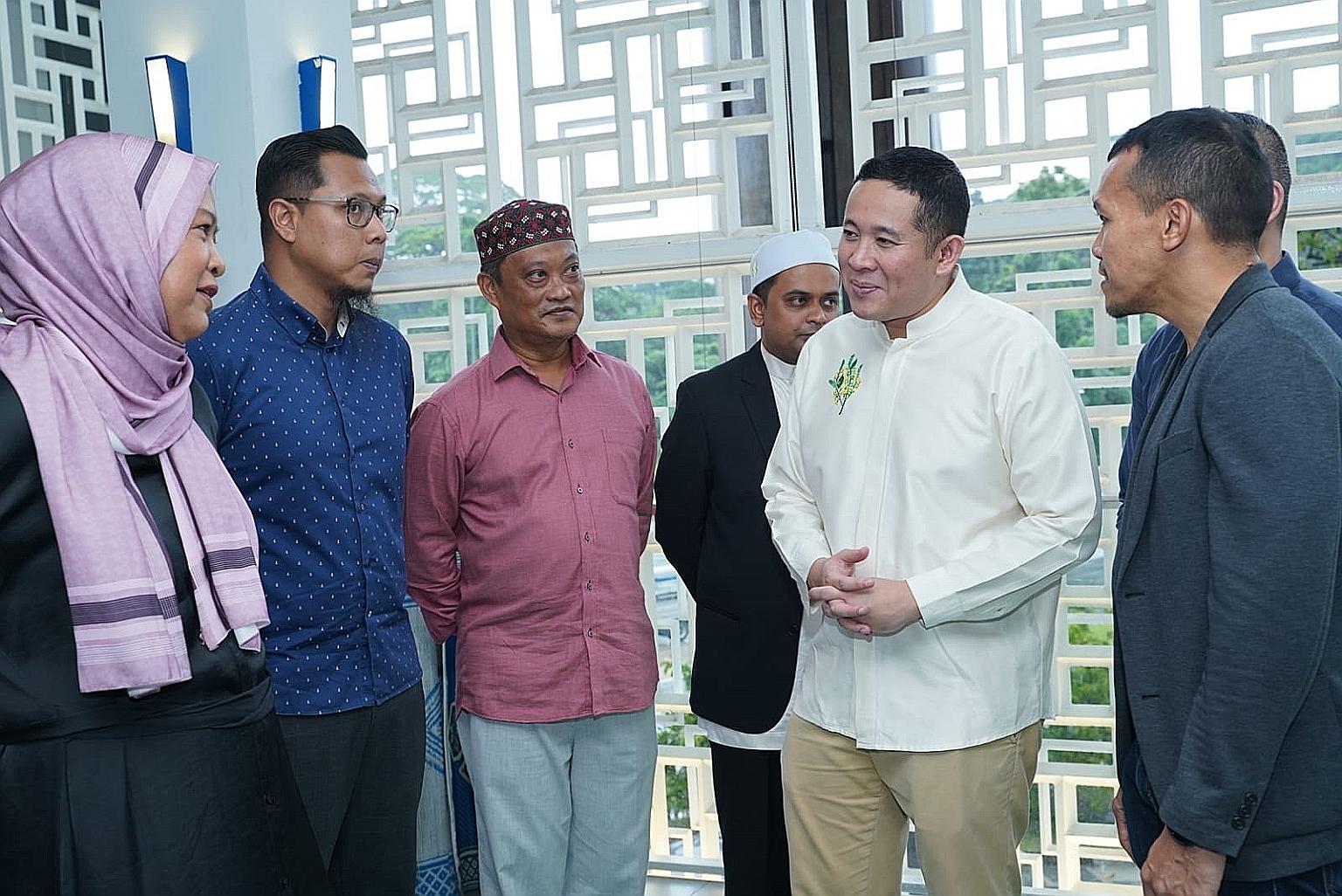More support for inmates, former offenders
Malay/Muslim network to boost in-prison schemes, help ex-inmates and their families
Sign up now: Get ST's newsletters delivered to your inbox

Senior Parliamentary Secretary for Home Affairs and Health Amrin Amin (in white) with community befrienders at a training session for Fitrah volunteers at Masjid Assyafaah in Sembawang last Saturday.
ST PHOTO: NUR DIYANA TAHA
Every week without fail, Madam Salimah Mohd Ayoob makes a phone call to a middle-aged woman whose son is in prison for drug offences.
While it is not part of her job, Madam Salimah, who is deputy director of nursing at the Singapore General Hospital, goes out of her way to check in on the woman, who misses her son.
Said Madam Salimah: "She is just a mother who misses her son. Sometimes, she drives to the prison and waves at the building. Although her husband is around, I talk to her to see how she is doing. She appreciates the gesture."
The 56-year-old is one of the many community befrienders from Family and Inmates Through-care Assistance Haven (Fitrah), which supports inmates, former offenders and their families. The initiative is part of efforts by Malay/Muslim community network M3 to support those who are vulnerable.
M3 gave an update of its Fitrah initiative last Saturday at Masjid Assyafaah in Sembawang.
It also launched its second focus area - supporting those who are vulnerable as well as their families - which is led by Senior Parliamentary Secretary for Home Affairs and Health Amrin Amin.
M3 is an alliance of three key Malay/Muslim organisations that was formed last year. It comprises the Council for the Development of Singapore Malay/Muslim Community or Mendaki, the Islamic Religious Council of Singapore or Muis, and the People's Association Malay Activity Executive Committees Council or Mesra.
M3's first focus area, launched in April, was to provide support to couples and their families in marriage, parenthood and early childhood development.
With the launch of the second focus area, M3 aims to improve the quality of in-prison programmes and services for offenders who are in jail, and help former inmates and their families after they leave prison.
Said Mr Amrin: "This initiative supports former offenders and families. This is an important area because rehabilitation is a challenging journey. And with the support of the community and Government, this challenging task would be made much easier."
The two-year recidivism rate among Malay offenders fell from 34.7 per cent for those released in 2011 to 28.9 per cent for those released in 2016. The number of Malay drug abusers arrested has also halved - from 3,200 in 1993 to about 1,700 this year.
Fitrah will introduce an enhanced religious knowledge curriculum for inmates next month, which will emphasise social and community values to prepare them for life after their release.
Since its launch last November, Muis-run Fitrah has more than doubled the number of its religious counsellors, from 54 to 130. About 100 of them are actively deployed to conduct counselling sessions in prisons.
Since April, former offenders were also given a care package upon their release that includes vouchers, an ez-link card, a prayer mat, and information on where they can get help. So far, about 120 packages have been distributed.
Fitrah has also recruited 196 community befrienders. Together with volunteers from the Yellow Ribbon Community Project, some of these befrienders make home visits to the families of those who are in prison as well as former offenders, to link them up with the network of social assistance available.
Other initiatives under M3 include therapy sessions organised by the Mendaki-run Family Excellence Circles, for the caregivers of children whose parents are or were in prison.
There are also courses by Mesra to help former offenders and their family members pick up new skills and reintegrate into the community.
Emphasising the importance of reaching out, Mr Amrin said: "This (initiative) is important because, more often than not, people who are in need will not step forward.
"We have to make the extra effort to make sure that they feel involved, they feel engaged, and they feel cared for."


